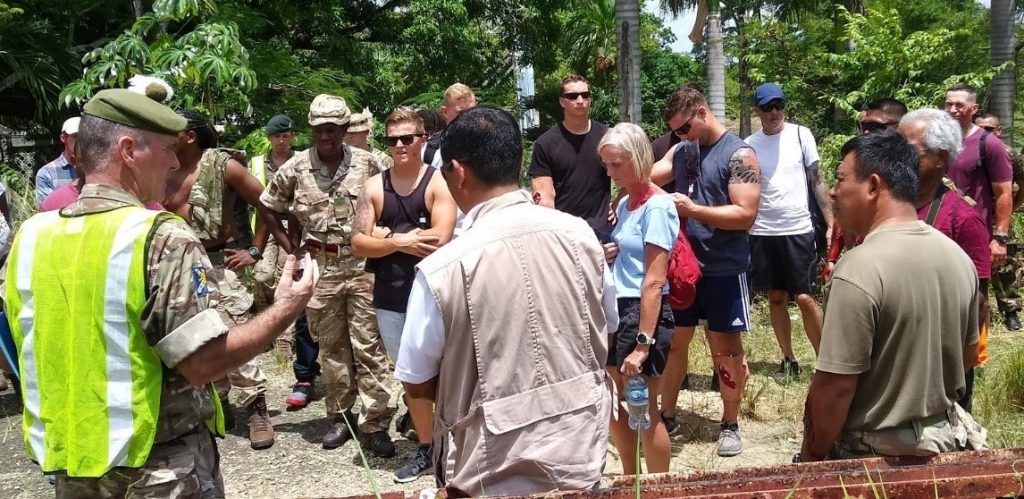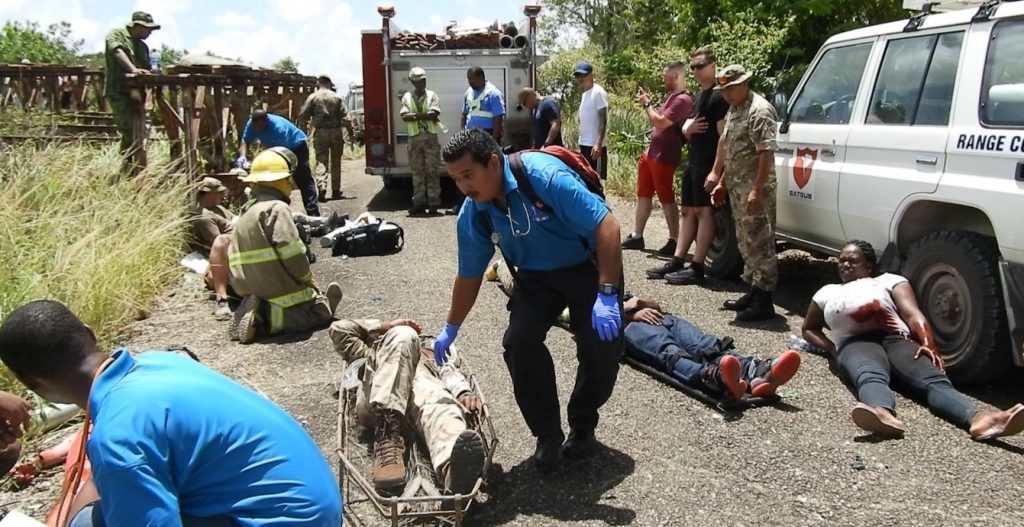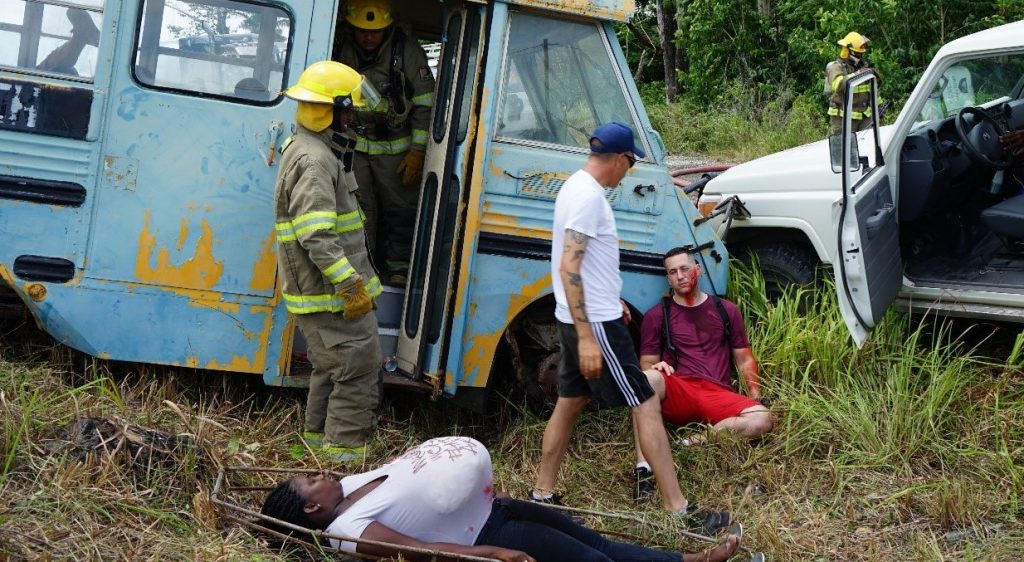
In Belize, we often cope with tropical storms, flash floods, wild fires, lightning storms and drive for hundreds of miles in dangerous conditions. Soldiers play an important role in helping in emergency responses, recovery situations and natural disasters.
DIO and BATSUB organised the exercise and helped bring it to life by providing staff, soldiers and civilians to act out scenes. We also provided equipment such as broken cars and came up with scenarios that would test even the most experienced emergency services.
Working with Belize agencies
The idea for Tropical Alliance first came into place when I was sitting at a dining room table, completing an environment assessment on how BATSUB could respond to an oil spill. The exercise was then created taking into consideration road conditions, the limited medical equipment we have and the emergency departments we would need to respond to such a situation.
Since April, I’ve worked with DIO, BATSUB and the Department of Environment (DOE) to bring together agencies to make sure this exercise was successful. The agencies involved include the Belize police,the Belize Defence Force (BDF),United States Marine Corps, the Fire Service, the Belize Emergency Response Ambulance Service, Belize Natural Energy (BNE), the Belize Natural Emergency Management Organisation and Astrum Helicopters.

Tropical Alliance takes place
Imagine this, a vehicle with a drunk driver is driving along Burrell Boom Bridge in Belize. It pulls out onto a road and collides with an oil truck which spins out of control and knocks people into the water. This causes other vehicles to collide with a mini bus full of American tourists (played by US Marines) and military vehicles on the bridge. The crash causes oil to spill into the river and onto the land.

What we learned
It was great to see that all agencies worked well together under pressure. The exercise helped to assess everyone’s ability to communicate and report to each other during the incident. It also showed further work needed to be done to command and control the situation between agencies.
Staff at BATSUB also got to see professionals in action on how they save lives in tough environments. As a result, more regular realistic training exercises were requested.
Leave a comment